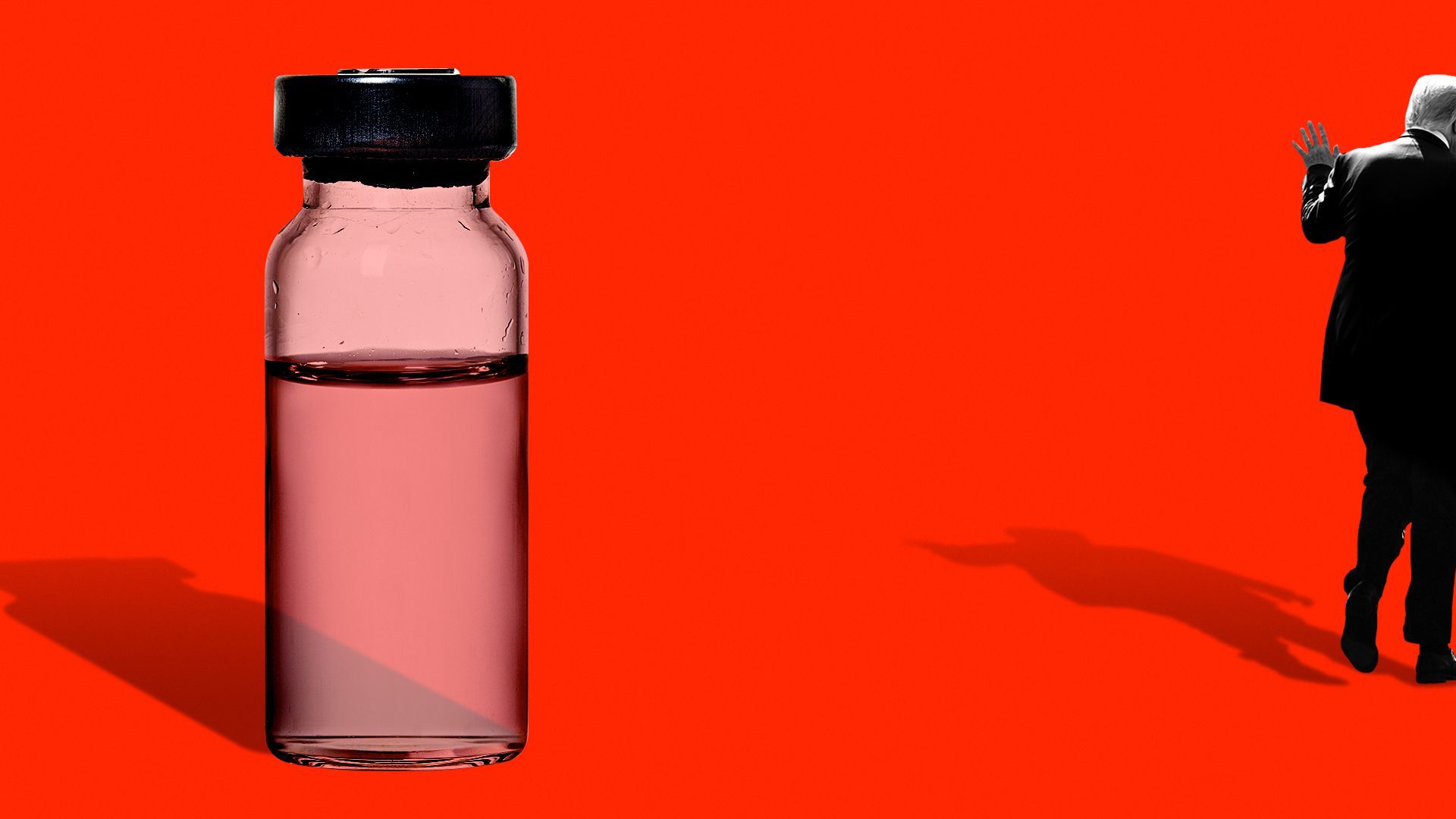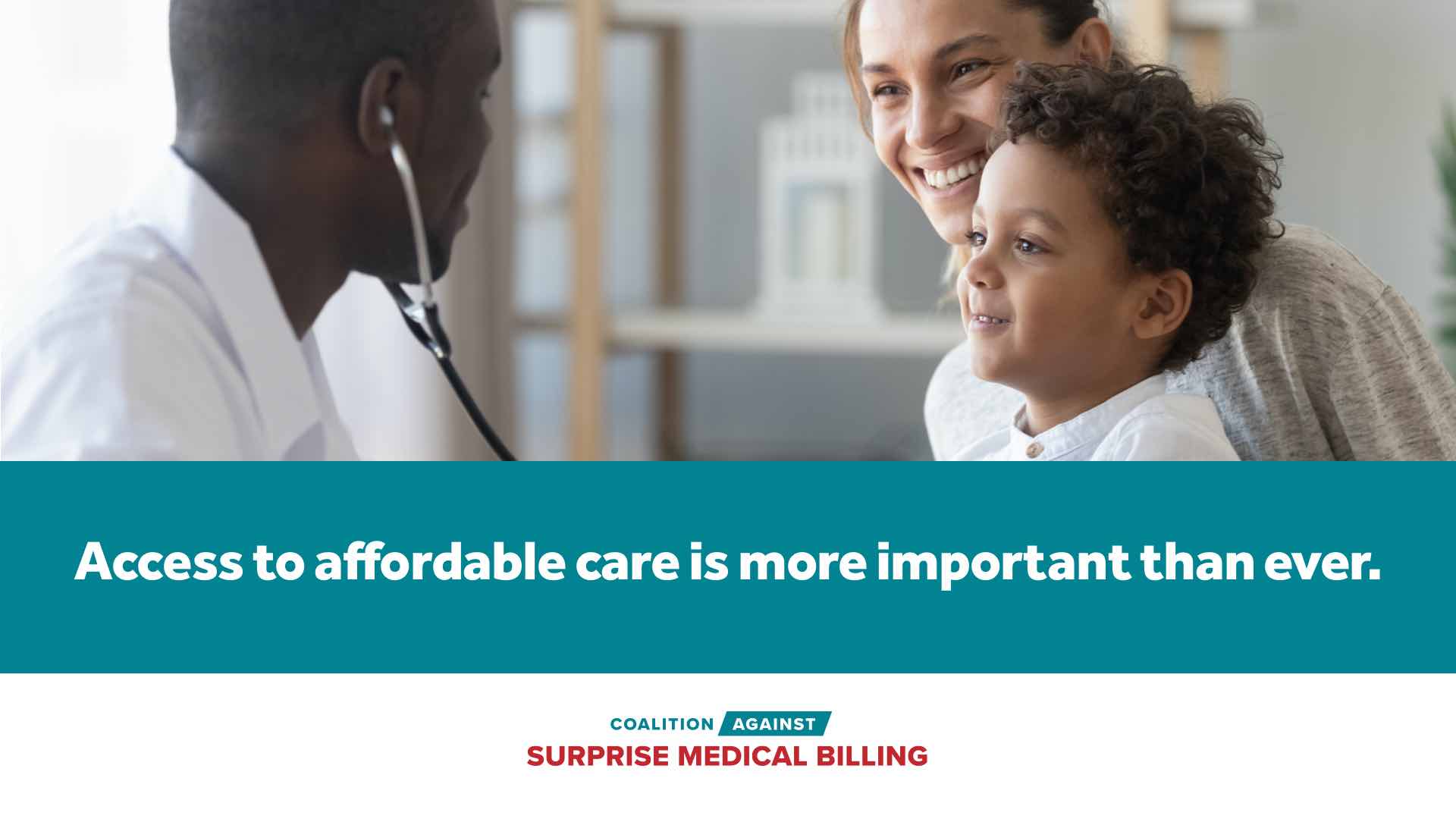| | | | | | | Presented By Coalition Against Surprise Medical Billing | | | | Vitals | | By Caitlin Owens ·Dec 09, 2020 | | Good morning. Today's word count is 1,032, or a 4-minute read. | | | | | | 1 big thing: Trump's departing pandemic failure |  | | | Illustration: Aïda Amer/Axios | | | | The first Americans will receive a coronavirus vaccine soon, but President Trump has done almost nothing to convince skeptical Americans that they ought to get vaccinated. Why it matters: The more people who get vaccinated, and the more quickly they do so, the faster and more safely we can all get back to our normal lives. But roughly a third of Americans still say they don't want one. The big picture: So far, there hasn't been a large-scale national vaccine education campaign, although the administration says one is in the works. - Experts say a federal communication effort would be helpful — including Trump's participation.
- "If you look at communication research, people are going to listen to individuals they consider informed, who are familiar, and who they trust. And for a segment of the U.S. population, that includes President Trump," said Monica Schoch-Spana, a senior scholar with the Johns Hopkins Center for Health Security.
- The communication need goes beyond convincing the public that the coronavirus vaccines are safe, Schoch-Spana said. People also should understand why some groups of people are being prioritized above others and the complexity surrounding multiple vaccines, some of which require more than one dose.
Driving the news: A new Gallup poll found that only half of Republicans say they'd get vaccinated. Trump, who holds enormous sway with his base, could theoretically reach some of those people. What we're watching: The Department of Health and Human Services is launching a $250 million public health education campaign, part of which will focus on vaccine acceptance. - The effort "is focused on what we are calling 'the movable middle' — specifically, we are working in support of CDC and others across the department to use public education to move folks who are hesitant about vaccines to acceptance of vaccines," an HHS spokesperson said.
Go deeper. |     | | | | | | 2. Axios-Ipsos poll: Early fears come back |  Data: Axios/Ipsos Poll; Chart: Andrew Witherspoon/Axios Growing dread and acceptance of the winter ahead is weighing on Americans' physical and mental health and raising fears about debt and job security, according to the latest installment of the Axios/Ipsos Coronavirus Index. The big picture: We're tracking a return to anxiety levels and routines not seen in months, as experts warn that the pandemic will get worse before vaccines are widely available, Axios' Margaret Talev writes. - People's views are being shaped by their own brushes with the virus, too. Three-fourths of respondents in our weekly national poll know someone who's tested positive for COVID-19 — and three in 10 know someone who's died.
By the numbers: More than seven out of 10 say returning to their normal pre-coronavirus life would pose a large or moderate risk to their health or well being, while 22% say their household debt has increased in the last month — the highest shares for both questions since April. But, but, but: Behaviors aren't moving in lockstep with fears. While 91% of Americans say they wear masks when they leave home, that's emboldened many to continue engaging outside the home largely as they have been for months. - Four in 10 Americans say they're still seeing friends and relatives.
- And there haven't been significant decreases among the minorities of respondents who are spending time indoors outside of their own homes.
Go deeper. |     | | | | | | 3. Biden prioritizing schools, teachers | | President-elect Joe Biden's COVID checklist includes getting Americans to wear masks as a patriotic duty and reopening the majority of schools by the end of April. Why it matters: The remote learning adopted by many of America's biggest school districts has been a disaster for students and parents alike. - Other countries have prioritized keeping schools and child care open, but not the U.S.
- As of October, "74% of the 100 largest school districts ... chose remote learning only as their back-to-school instructional model, affecting over 9 million students," per EdWeek.
Teachers are high on Biden's list for vaccinations, he said Tuesday: - [W]e'll follow the guidance of science to get the vaccine to those most at risk. That includes health care professionals, people in long-term care and, as soon as possible, it will include educators."
Between the lines: The CDC and states are setting vaccination priorities, a senior Trump White House official said Monday. The bottom line: "My first 100 days won't end COVID-19. I cannot promise that," Biden said. - "But I am convinced that in 100 days we can change the course of the disease and change life in America for the better."
|     | | | | | | A message from Coalition Against Surprise Medical Billing | | Stop surprise medical bills with fair, market-based prices | | |  | | | | Fair, market-based payments for out-of-network services will save taxpayers $25 billion over the next decade. The choice for policy-makers is clear: provide relief for more than 100 million Americans or give a hand-out to private equity firms. Stop surprise bills with fair, market-based prices. | | | | | | 4. Another vaccine news dump | | Peer-reviewed research published Tuesday confirms that the coronavirus vaccine developed by AstraZeneca and Oxford University is moderately effective at preventing infection, and it appears to keep people out of the hospital, Axios' Sam Baker writes. Why it matters: Some questions remain about AstraZeneca's vaccine, but the findings released in The Lancet medical journal help validate that the product works and is safe. The big picture: When AstraZeneca's vaccine was administered in two standard doses, it was about 62% effective in preventing symptomatic infections. The big question: The company accidentally gave some patients a modified dosing regimen — a half dose, followed by a full standard dose. In those patients, the vaccine registered 90% efficacy. - Experts have puzzled over those results since AstraZeneca's initial release, and the research published Tuesday doesn't have many answers.
- The lower initial dose also appeared to be much more effective in preventing asymptomatic spread.
Related: The FDA's vaccine advisory committee released a detailed analysis on Tuesday finding that Pfizer's coronavirus vaccine appears to meet the safety and efficacy requirements necessary for an emergency use authorization (EUA). - The FDA's initial review suggests that the agency will issue an EUA after its advisory committee meets on Thursday, Axios' Orion Rummler writes.
- The FDA found that there are no specific safety concerns from Pfizer's vaccine by race, age, ethnicity, medical co-morbidities, or a prior COVID infection.
- The most common negative side effects of vaccination were fatigue, headache, muscle pain, chills, joint pain, and fever.
|     | | | | | | 5. Catch up quick |  | | | Illustration: Aïda Amer/Axios | | | | President Trump's lawyer Jenna Ellis has informed associates she tested positive for the coronavirus, multiple sources told Axios' Jonathan Swan, stirring West Wing fears after she attended a senior staff Christmas party on Friday. House Minority Leader Kevin McCarthy told Axios' Alayna Treene that both he and Senate Majority Leader Mitch McConnell told the White House they would support including $600 stimulus checks in a coronavirus relief deal being negotiated in Congress. President Trump's personal attorney Rudy Giuliani said on the WABC radio show Tuesday that he is "doing fine" after being admitted to the hospital following a positive COVID-19 diagnosis on Sunday, noting he has a small cough but no fever. Scott Gottlieb, former FDA commissioner and current Pfizer board member, confirmed on Tuesday that the Trump administration turned down Pfizer's offer for an additional 100 million coronavirus vaccine doses last summer, as the New York Times first reported. |     | | | | | | A message from Coalition Against Surprise Medical Billing | | Arbitration puts private equity profits over patients | | |  | | | | There's broad bipartisan support to stop surprise medical billing. But how we do it matters. In Texas, 85% of the arbitration requests in the first six months were from private equity firms, with the cost of arbitration averaging $1,000 per claim. Stop surprise bills with fair, market-based prices. | | | | | | Axios thanks our partners for supporting our newsletters.
Sponsorship has no influence on editorial content. Axios, 3100 Clarendon Blvd, Suite 1300, Arlington VA 22201 | | | You received this email because you signed up for newsletters from Axios.
Change your preferences or unsubscribe here. | | | Was this email forwarded to you?
Sign up now to get Axios in your inbox. | | | | Follow Axios on social media:    | | | | | |






No comments:
Post a Comment